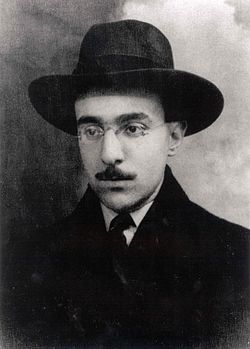Fernando Pessoa Quote
I’m certain, but my certainty is a lie. To be certain is to not be seeing. The day after tomorrow doesn’t exist. This is what exists: A blue sky that’s a bit hazy and some white clouds on the horizon, With a dark smudge underneath, as if they might turn black. This is what today is, And since for the time being today is everything, this is everything. I might be dead—who knows?—the day after tomorrow, In which case the storm that will strike the day after tomorrow Will be a different storm than it would be if I hadn’t died. I realize that the storm doesn’t fall from my eyes, But if I’m no longer in this world, the world will be different—There will be one person less—And the storm, falling in a different world, won’t be the same storm. In any case, the storm that’s going to fall will be the one falling when it falls. 10 JULY 1930
I’m certain, but my certainty is a lie. To be certain is to not be seeing. The day after tomorrow doesn’t exist. This is what exists: A blue sky that’s a bit hazy and some white clouds on the horizon, With a dark smudge underneath, as if they might turn black. This is what today is, And since for the time being today is everything, this is everything. I might be dead—who knows?—the day after tomorrow, In which case the storm that will strike the day after tomorrow Will be a different storm than it would be if I hadn’t died. I realize that the storm doesn’t fall from my eyes, But if I’m no longer in this world, the world will be different—There will be one person less—And the storm, falling in a different world, won’t be the same storm. In any case, the storm that’s going to fall will be the one falling when it falls. 10 JULY 1930
Related Quotes
About Fernando Pessoa
Pessoa was a prolific writer both in his own name and approximately seventy-five other names, of which three stand out: Alberto Caeiro, Álvaro de Campos, and Ricardo Reis. He did not define these as pseudonyms because he felt that this did not capture their true independent intellectual life and instead called them heteronyms, a term he invented. These imaginary figures sometimes held unpopular or extreme views.
